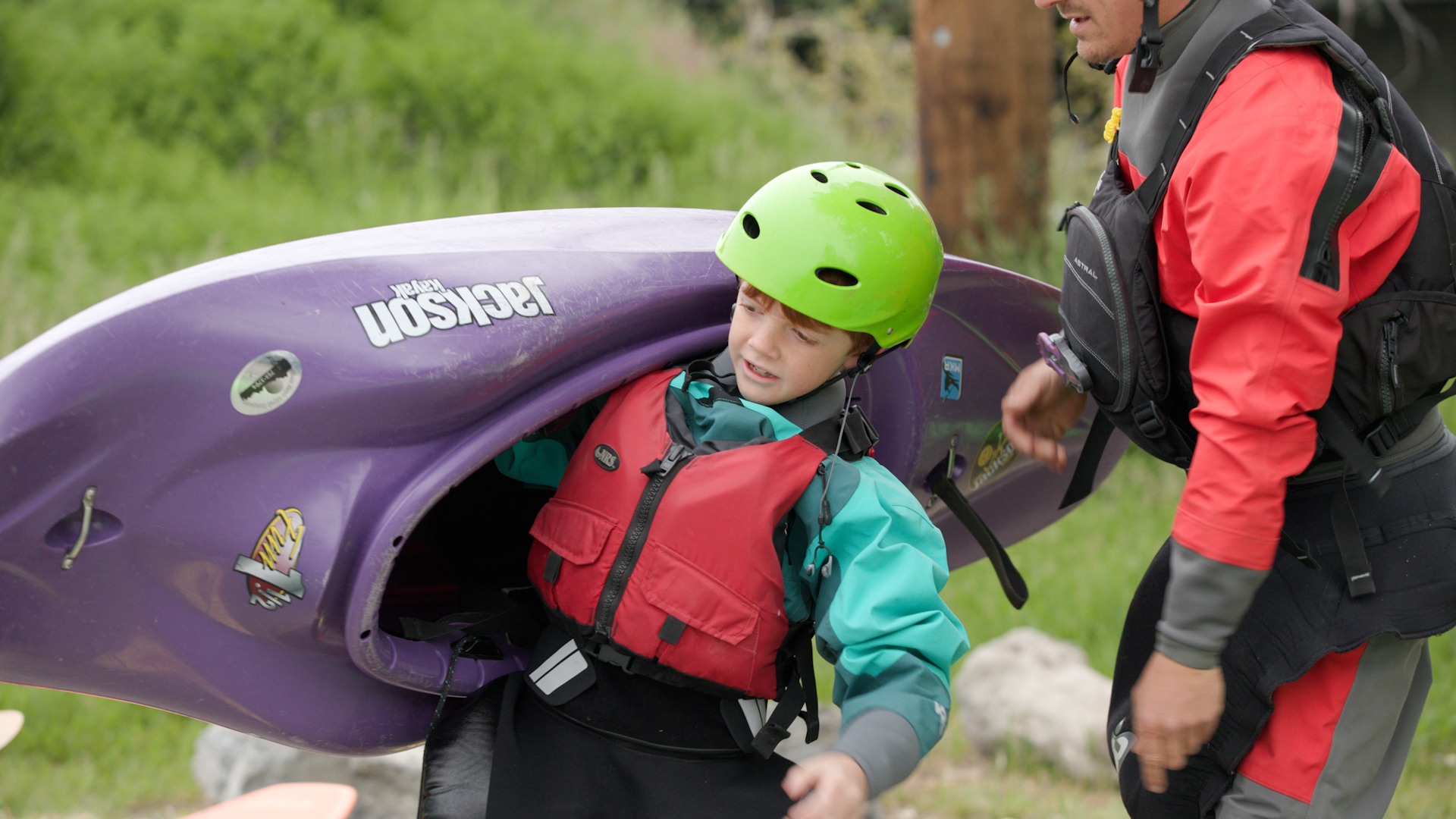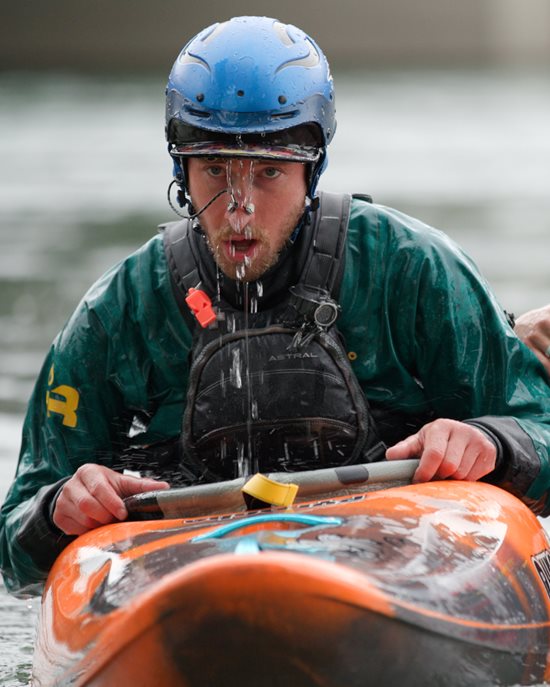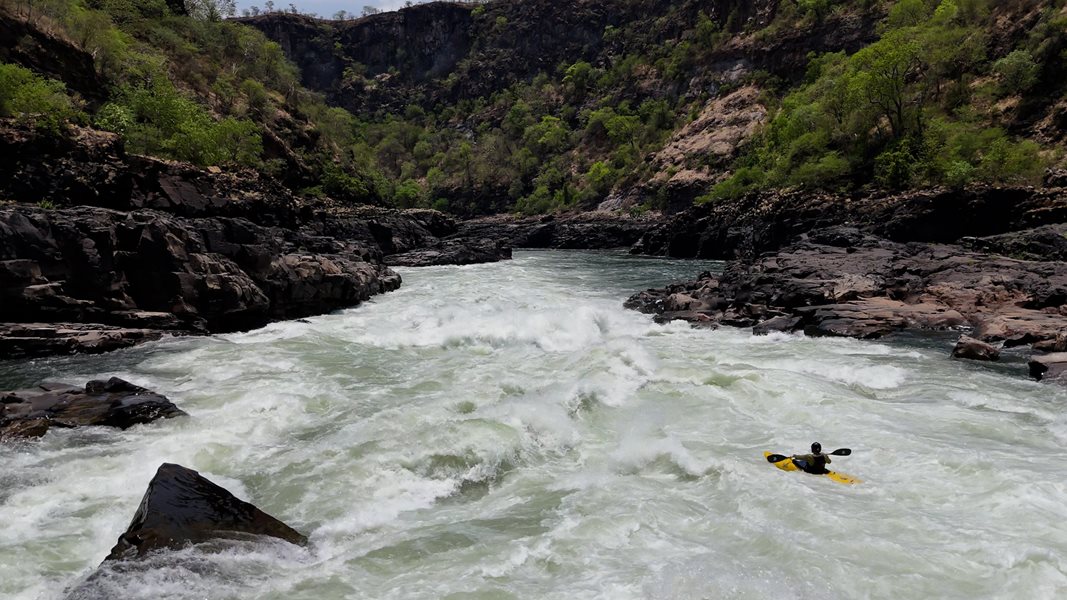Zen and the Art of Kayaking
For Dave Meyers, kayaking isn’t just a sport or an activity. It’s pretty much a philosophy. He wouldn’t be the first athlete or sportsperson to see the world through a more reflective lens. The philosophy of sport is a long-standing tradition for human beings, dating back to ancient Greece. Much like surfing or running, certain sports—especially ones that tap into an outdoorsy sense of adventure—tend to bring out a more introspective view of the world and our place in it.
“If people are stoked on kayaking and they love the river, they’re gonna want to protect the river…”
When we think about kayaking, where one person is journeying on a river that starts out peaceful and calm, only to find themselves paddling their way through a rushing torrent of water, knowing they could overturn at any moment, and then managing through only to find themselves facing a new challenge that could be even more intense…well, it’s not exactly a subtle metaphor for life. But for a kayaker, there’s no joy more complete, even if the water makes it very clear—from the beginning—just who is boss.
“It’s a humbling sport because you can never be better or bigger than the water,” says Dave. “A lot of people—when you look at like a hard section of white water or a rapid, you’re like looking at all the bad things. You’re like, ‘Man, this is white, and it’s frothing, and I don’t know how you would go through there. But a kayaker, after years of running rivers and knowing how water reacts, they’re just looking at one or two little lines throughout that whole rapid where they can keep their head dry. The more you kayak, the more your ability grows, and then the more your ability to see the line grows. And when you get done with a hard rapid, there’s really not a better feeling.”

Experience can shape us and change how we interact with the world. For a newbie kayaker, seeing the path ahead—or rather the river—can be a daunting one. How on earth are we supposed to navigate what appears to us to be a deadly rush of water and rocks? Well, it starts with accepting that without experience, it’s hard to navigate the rapids safely. But with the guidance of a patient instructor, there is the opportunity to learn not only how to paddle but how to spot the way through…and have the confidence and experience to paddle on through, all while having the time of your life.
“It takes a lot of time in your boat, and a lot of time watching water to understand, ‘OK, this rapid is actually runnable,’ and creating calmness in like a scenario of chaos,” says David Myers

It’s Dave’s passion for kayaking and the wilderness that has shaped his career and a way of life. Now, he’s the executive director and instructor of Montana Kayak Academy (MKA). Started in 2016, the non-profit organization initially offered free programs to kids and youths. It was an attempt to grow the sport, and introduce it to a whole new generation.
However, it’s grown so much now that it’s almost mind-blowing. MKA has recently partnered with Sierra Rescue International to offer “Swift Water Rescue Training,” on top of an enormous selection of classics and clinics intended to hit not only every experience level but to do so in a way that includes as many people as possible. They offer roll clinics, kayaking intros, five-week programs, long trips, and clinics for women, veterans, and those wishing to foster a greater sense of community. Beginners can even “test” whether kayaking is a sport that they’ll enjoy. And for those who are facing financial insecurity, there are scholarships available.
But for Meyers, it’s more than just growing the sport and making it accessible to as many people as possible. It’s about nurturing that sense of responsibility and protection in younger generations. And nothing makes them appreciate the outdoors—and the need to protect it—like fully immersing themselves in it (in some ice-cold cases, literally).
“I keep trying to tell folks, you know, it’s more than just like the physical aspect of it. There’s just like a lot of mental benefits to just like being in the present, and being able to like have that confidence to do something by yourself. When I step back, and I really understand what kayaking is, it’s like you’re creating stewards of our natural surroundings. If people are stoked on kayaking and they love the river, they’re gonna want to protect the river—protect the natural places that we get to inhabit—and play.
“You can go to places that no one else in the world could get to.”

For members like you.
Because what we do pays dividends.
